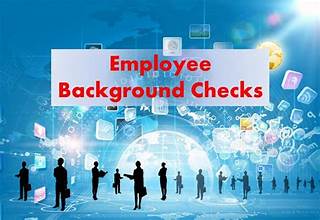Conducting a background check is an important component of onboarding a new employee. It gives information about the history of an employee and provides insights into their character. The background check helps uncover critical details that can make or break an offer to hire them. It serves as a way to get details that might not be available or disclosed during an interview. Here is what you need to know about conducting a background check for your business.
What Is a Background Screening?
A background screening or background check is a deep dive into the history of a candidate. The background check uses third-party resources to investigate public records, law enforcement, credit bureaus, academic records, and previous work history. Employers generally pay a flat fee for a comprehensive background check that can take several days to complete. Among other things, a background check can uncover information about an individual such as employment history, criminal records, credit history and more. The purpose of a check can be to confirm that an individual is who they say they are, uncover any potential conflicts or a combination of both.
Why Pre-Employment Background Checks Are Important
More than ever, business owners must trust employees with the keys to the kingdom. That might sound like hyperbole but think about it this way. An employer who hires someone to handle cash will want to know that the person does not have a criminal history. Other scenarios include employees who are given access to trade secrets and proprietary data—you want to be able to trust that the employees will properly handle themselves, given the nature of the information. A background check is no guarantee you will get the right person, but it is a step in the right direction to better understand who you are hiring. If an employer does not conduct a background check, the only information they have to go on is the information provided by the employee. This can be lacking for obvious reasons—people want to put their best foot forward and do not want to disclose negative information.
What to Look for in a Background Screening Service
If you choose to hire the services of a background screening service, you will want to make sure that the company is reputable and complies with all applicable laws and regulations. And before you commit to a service, investigate the company’s data privacy policies to make sure that you do not open yourself up to any vulnerabilities. Depending on your industry, it is also a good idea to make sure that the service can cater to whatever regulations or procedures are unique to the type of business you run.
How to Run a Background Check
You found a candidate that you like. The next step is running a background check to see if there is anything in their history that will change your impression of them. It is important to ensure that background checks are run consistently among candidates to avoid human resources violations. Because background checks cost money, many employers wait until a candidate is offered a job to run the background check. Here are some simple steps to follow.
- Make an Offer
Screen applicants and find the one whom you really like and to whom want to extend a job offer. Make the offer in writing as conditional employment. By waiting to do the background check until you make an offer, you have a clear threshold of who gets screened and who does not. It is not arbitrary.
- Explain the Screening Process
Explain to the prospect that a background check is required and that the information discovered in the background check is reviewed as part of the applicant’s screening for employment. While all notices should be on the consent form, review with the applicant what information is obtained and how you review it. This is also a good time to ask the applicant if there is anything in their background that they would like to disclose so that there are no surprises and they have a chance to explain their side of the story.
- Obtain Consent in Writing
Inform the candidate that the next step for them to sign an authorization for the background check. This includes authorization for a credit check so that you follow the laws set forth by the Fair Credit Reporting Act (FCRA). The authorization must notify applicants that a third-party screening will be conducted and what is involved.
- Be Consistent on Who Is Screened
This cannot be iterated enough because you want to comply with human resource laws. For example, the Equal Employment Opportunity Commission (EEOC) provides guidance on looking at criminal history when making employment decisions. All employment decisions must be related to job-related duties. For example, you might withdraw the offer for a company driver if the person has too many tickets on their driving record.


Recent Comments